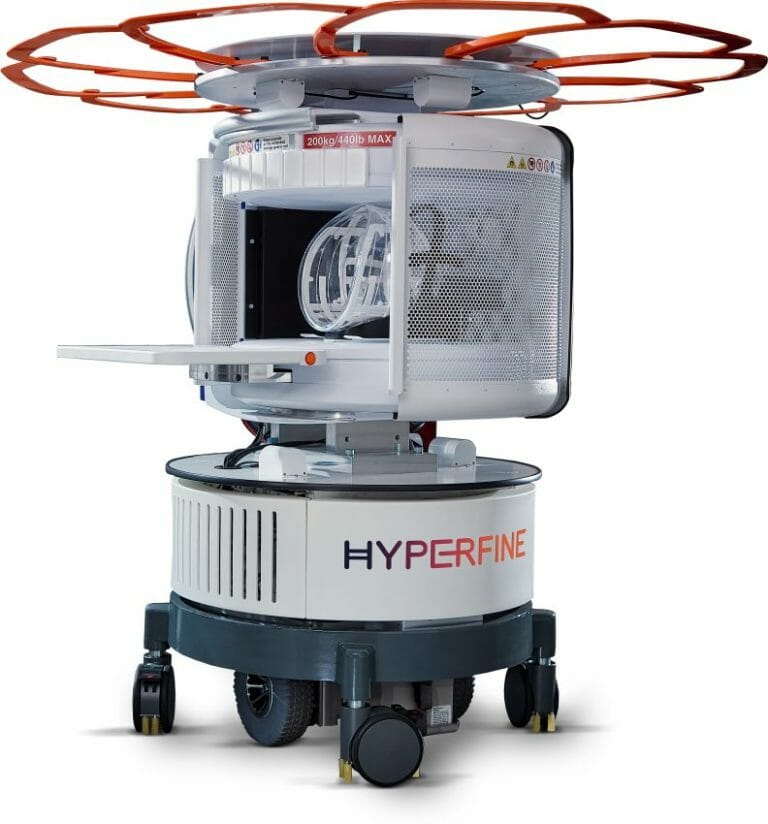Hyperfine, Inc. (Nasdaq: HYPR), the groundbreaking medical device company that created the Swoop® system, the world’s first FDA-cleared portable magnetic resonance imaging (MRI) system, today announced an expansion of clinical research to study the neurological effects of early childhood malnutrition in low and middle-income countries, with funding support from the Bill & Melinda Gates Foundation. The goal of the collaborative, multi-year global study is to address the impact of malnutrition on school readiness and academic achievement in the future development of children.
The three-year extension is covered under a new $3 million grant through which Hyperfine, Inc. plans to make enhancements to the Swoop® Portable MR Imaging® system to improve the system’s functionality, software, and data management specifically for use in remote low and middle-income settings; to continue to support the research of and optimization of neuroimaging MRI sequences for neonates and infants; and provide technical support for all Swoop® systems that are part of the global study. This work will be carried out by Hyperfine, Inc. engineers and scientists working hand-in-hand with leading MRI physicists and imaging scientists also funded by the Bill & Melinda Gates Foundation.
“This work is designed to benefit infants and young children throughout the world. Children born preterm, small for gestational age, or who face malnutrition, neglect, or other forms of adversity are at risk for delayed, impaired, or sub-optimal neurodevelopment,” said Dr. Khan Siddiqui, Chief Medical Officer at Hyperfine, Inc. “This investment will fill a critical role in providing an affordable, scalable method for directly evaluating the efficacy of interventions to improve infant and child health and neurodevelopment.”
Magnetic resonance (MR) brain imaging for newborns, infants, and young children is essential for early assessment of brain development. In a medical setting, using an MRI at the patient’s bedside can quickly help physicians diagnose and treat issues like difficulty breathing at birth, infections, brain inflammation, and other common brain-related problems. Today, high-field MRI machines are not widely available or accessible in low- and middle-income countries. There is a need for affordable, easy-to-use imaging to evaluate neurodevelopmentally focused interventions. We believe this need is a significant issue in global health.
“Hyperfine, Inc. is building a global network of Swoop® Portable MR Imaging® systems to make imaging more accessible to patients around the world. Through our collaboration with the foundation’s UNITY project, we are actively partnering and learning alongside researchers and clinicians from Uganda to Bangladesh who see the immense value of accessible and affordable MR imaging,” said Maria Sainz, President and CEO of Hyperfine, Inc. “What we are witnessing firsthand in low- and middle-income countries from this team also has implications for current and future Swoop® system clinical use cases in the United States and internationally. We are excited about the possibilities to improve global health with our Swoop® system.”
The extension of Hyperfine, Inc.’s work on the Swoop® system and continued support from the Bill & Melinda Gates Foundation, which began in March 2020, highlights the power of combining innovative technology with philanthropic efforts to address global health challenges. By equipping low- and middle-income settings with the Swoop® Portable MR Imaging® system, this initiative aims to close the gap in neurodevelopmental assessment and enable more targeted interventions, transforming the lives of children affected by malnutrition.
For more information about the Swoop® Portable MR Imaging® System, please visit here.
